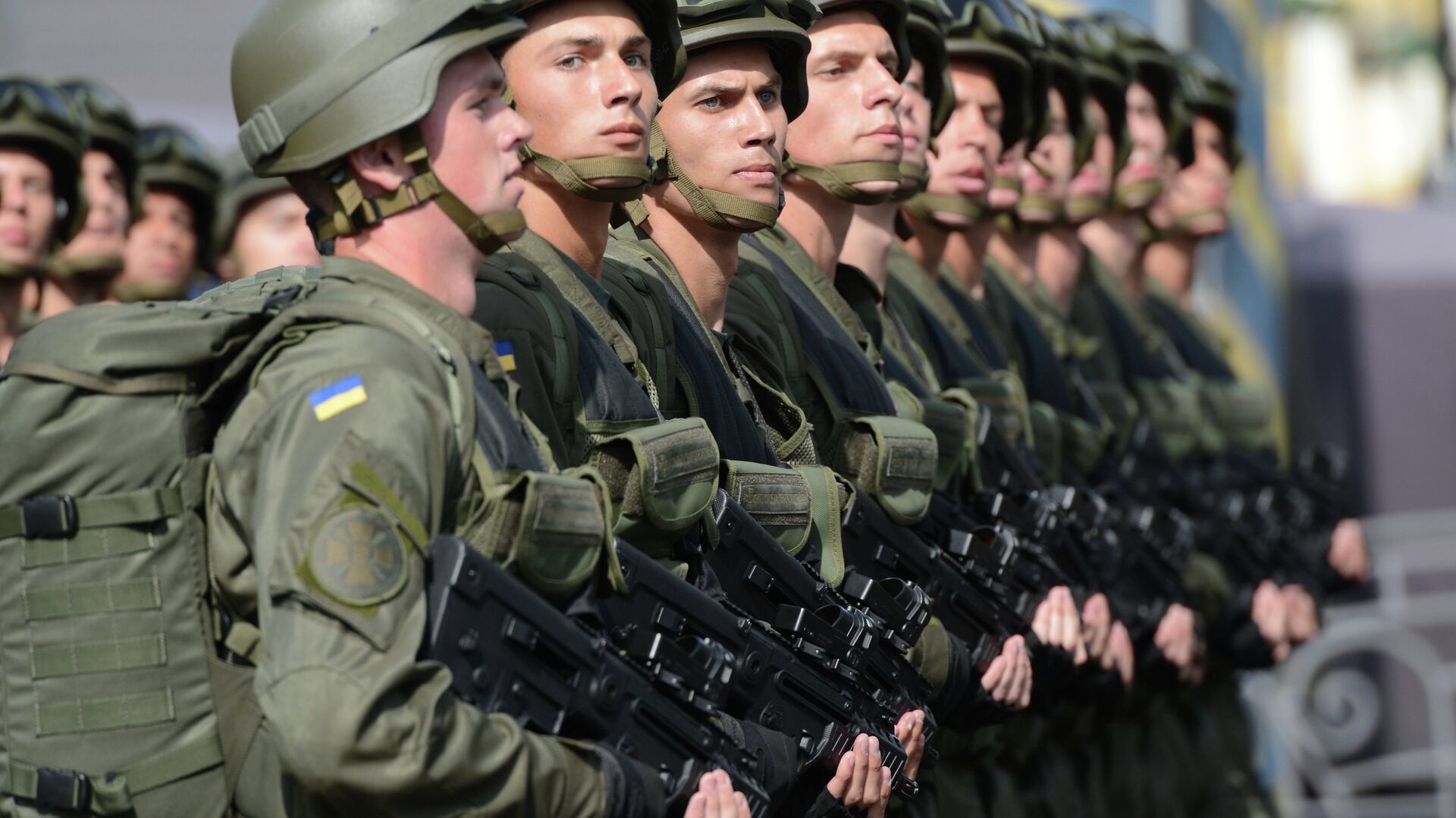https://sputnikglobe.com/20211122/scholars-us--eu-using-ukraine-invasion-story-to-divert-attention-from-growing-domestic-problems-1090937354.html
Scholars: US & EU Using 'Ukraine Invasion' Story to Divert Attention From Growing Domestic Problems
Scholars: US & EU Using 'Ukraine Invasion' Story to Divert Attention From Growing Domestic Problems
Sputnik International
The US has reportedly provided some European NATO members with intelligence showing an alleged buildup of Russian troops near Ukrainian borders, according to... 22.11.2021, Sputnik International
2021-11-22T20:36+0000
2021-11-22T20:36+0000
2022-10-19T21:18+0000
gazprom
joe biden
energy crisis
world
europe
us
opinion
ukraine
hillary clinton
poland
https://cdn1.img.sputnikglobe.com/img/102562/23/1025622343_0:160:3077:1890_1920x0_80_0_0_588896c679589878e158eb9bbe3a5156.jpg
Bloomberg claims that Moscow is preparing for nothing short of "a rapid, large-scale push into Ukraine from multiple locations." Under a scenario said to have been discussed by US officials, Russia's 100,000-strong contingent would cross into Ukraine from Crimea, the Russian border and via Belarus. The newspaper admitted, however, that "America and others are not saying a war is certain, or even that they know for sure Putin is serious about one."Moscow has consistently rejected the US allegations, with Kremlin spokesperson Dmitry Peskov denouncing the media fuss over allegations of Russian plans to invade Ukraine as "artificial hysteria." In contrast, NATO's naval manoeuvres in the Black Sea in close proximity to Russia's borders trigger real concern, according to the Kremlin.Biden Trying to Make Political GainsThe timing of this latest "Russia scare" is most likely related to the forthcoming Putin-Biden meeting, argues Nicolai Petro, professor of political science at the University of Rhode Island, specialising in Ukraine and Russia."President Biden, who is floundering in the polls, would very much like to be able to show his Republican critics that he can 'subdue' Putin," Petro says. "As the late American political scientist Murray Edelman once pointed out, there is a long tradition in American politics of establishing leadership by concocting an imminent danger (he called this 'the political spectacle'), and then making it go disappear."However, the Biden administration appears to be stuck in 2014 and still using an old playbook, according to the academic. Petro suggests that Biden has overlooked both enormous social and structural changes that have taken place in Crimea after re-unification with Russia and Kiev's failure to forcefully push Donbass back into Ukraine.Therefore, according to the political scientist, the White House is resorting to the familiar strategy of sanctions, which though accomplishing nothing could receive bipartisan support in Congress, something that Biden desperately needs.Earlier this week, US Senate Foreign Relations Chairman Bob Menendez (D-NJ) introduced an amendment that would trigger a broad range of sanctions against Moscow if the US president, in their words, determines that Russia is engaged in or knowingly supports a significant escalation in hostilities or hostile action in or against Ukraine compared to levels before 1 November 2021.Wrong Timing to Hinder Nord Stream 2The unfolding dynamics around Ukraine are also linked to the German-Russian Nord Stream gas pipeline, with the US checking "in one shot" Germany, the EU and Russia to prevent "any possible coupling in the Eurasian space," suggests Paolo Raffone, a strategic analyst and director of the CIPI Foundation in Brussels.The analyst cites the fact that last week Germany's energy regulator Bundesnetzagentur (BNetzA) suspended the certification process for Nord Stream 2 gas pipeline amid the latest Moscow-Washington row.The US has repeatedly tried to throw sand under the wheels of the project, denouncing the EU's dependency on Russia's hydrocarbons. The European bloc gets about 40% of its imported natural gas from Russia.For its part, Kiev largely sees the pipeline as a threat to the natural gas transit through the Ukrainian territory, despite Moscow's earlier statements that the transit would not be shut down.Fuller does not rule out that EU leadership may be seeking to pin the blame for the bloc's flawed energy policies on a set of "external factors," including Russia.Why US & NATO Have Zero Appetite for Confronting RussiaThe US-NATO military buildup in Ukraine and Secretary General Jens Stoltenberg's declarations that the transatlantic bloc "stands" with Kiev does not mean that "the Council would find any common ground on any significant action towards Russia," deems Raffone.There is no appetite in Washington for a military confrontation with Russia, echoes Professor Robert Singh, a specialist in contemporary US politics at Birkbeck, University of London, adding that the probable US path is more economic sanctions."At this moment, the US in particular faces multiple problems and seems uncertain as to what it wants," Singh suggests. "Washington appreciates that in expanding NATO to Russia's borders, it has taken on commitments that it may not be able or willing to honour. Ukraine is another such example. The idea of NATO membership is off the agenda, but Biden still wants to show 'solidarity' with a nation he hopes to integrate with the West, geo-politically and economically."Although hawks in Washington may cross Russia's "red lines" by supplying Ukraine with additional advanced military equipment, there are several issues which are currently thwarting their agenda, according to Fuller.First, according to the author, Europeans are by no means interested in a military standoff in Ukraine, given that it is fraught with a risk of instability and a new influx of refugees, she notes. Second, "the hawkish attitude that relies on a never-ending series of external threats is wearing thin among the American public." Third, the positions of the Democratic neo-liberal "establishment" are not as solid as they used to be.
https://sputnikglobe.com/20211112/pentagon-says-it-doesnt-assess-russias-troop-movements-as-plan-to-invade-ukraine-in-coming-days-1090693296.html
https://sputnikglobe.com/20211122/us-reportedly-shared-intel-maps-with-european-allies-showing-alleged-buildup-of-russian-troops-1090909808.html
https://sputnikglobe.com/20211119/berlin-should-speed-up-certification-of-nord-stream-2-to-avoid-higher-energy-prices-trafigura-ceo-1090863079.html
https://sputnikglobe.com/20211020/ukraine-nato-membership-why-us-eu-wont-test-russias-red-lines-despite-pentagon-chiefs-bravado-1090076490.html
https://sputnikglobe.com/20211114/us-media-reveal-why-nato-arms-aid-to-ukraine-risks-crossing-a-bright-red-line-with-russia-1090729310.html
ukraine
poland
germany
Sputnik International
feedback@sputniknews.com
+74956456601
MIA „Rosiya Segodnya“
2021
News
en_EN
Sputnik International
feedback@sputniknews.com
+74956456601
MIA „Rosiya Segodnya“
Sputnik International
feedback@sputniknews.com
+74956456601
MIA „Rosiya Segodnya“
gazprom, joe biden, energy crisis, europe, us, opinion, ukraine, hillary clinton, poland, germany, jens stoltenberg, invasion, nato, nord stream 2
gazprom, joe biden, energy crisis, europe, us, opinion, ukraine, hillary clinton, poland, germany, jens stoltenberg, invasion, nato, nord stream 2
Scholars: US & EU Using 'Ukraine Invasion' Story to Divert Attention From Growing Domestic Problems
20:36 GMT 22.11.2021 (Updated: 21:18 GMT 19.10.2022) The US has reportedly provided some European NATO members with intelligence showing an alleged buildup of Russian troops near Ukrainian borders, according to Bloomberg. The Kremlin has rejected the unsubstantiated claims. According to observers, the latest "Russian scare" story by the US and the EU is a distraction and a bargaining chip.
Bloomberg claims that Moscow is preparing for nothing short of "a rapid, large-scale push into Ukraine from multiple locations." Under a scenario said to have been discussed by US officials, Russia's 100,000-strong contingent would cross into Ukraine from Crimea, the Russian border and via Belarus. The newspaper admitted, however, that "America and others are not saying a war is certain, or even that they know for sure Putin is serious about one."
Moscow has consistently rejected the US allegations, with Kremlin spokesperson Dmitry Peskov denouncing the media fuss over allegations of Russian plans to invade Ukraine as "artificial hysteria." In contrast, NATO's naval manoeuvres in the Black Sea in close proximity to Russia's borders trigger real concern, according to the Kremlin.
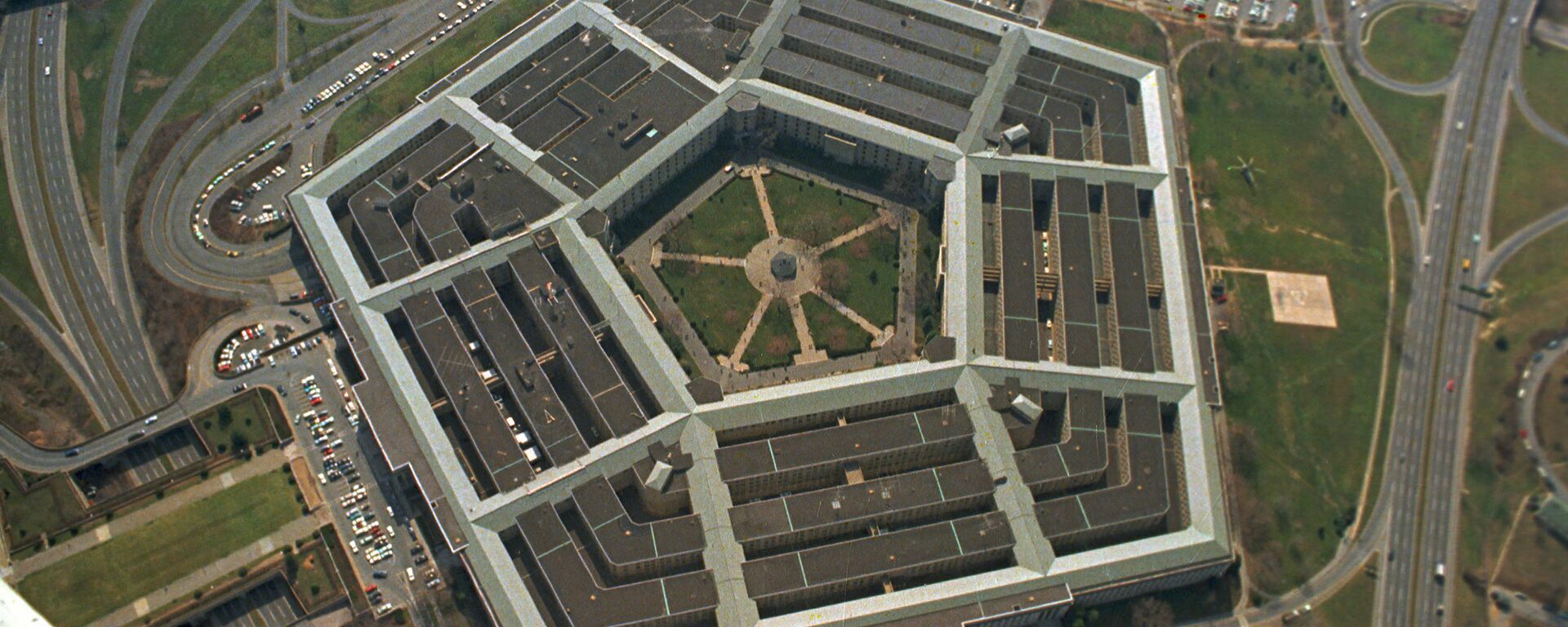
12 November 2021, 17:49 GMT
Biden Trying to Make Political Gains
"The US presidency is now back in the hands of what I would loosely call the neo-liberal Clinton-faction," says Dr. Roslyn Fuller, a Canadian-Irish author and director of the Dublin-based Solonian Democracy Institute. "Neo-conservative Republicans and neo-liberal Democrats both favour foreign intervention. So, to some extent, what we are seeing is just a return to business as usual."
The timing of this latest "Russia scare" is most likely related to the forthcoming Putin-Biden meeting, argues Nicolai Petro, professor of political science at the University of Rhode Island, specialising in Ukraine and Russia.
"President Biden, who is floundering in the polls, would very much like to be able to show his Republican critics that he can 'subdue' Putin," Petro says. "As the late American political scientist Murray Edelman once pointed out, there is a long tradition in American politics of establishing leadership by concocting an imminent danger (he called this 'the political spectacle'), and then making it go disappear."
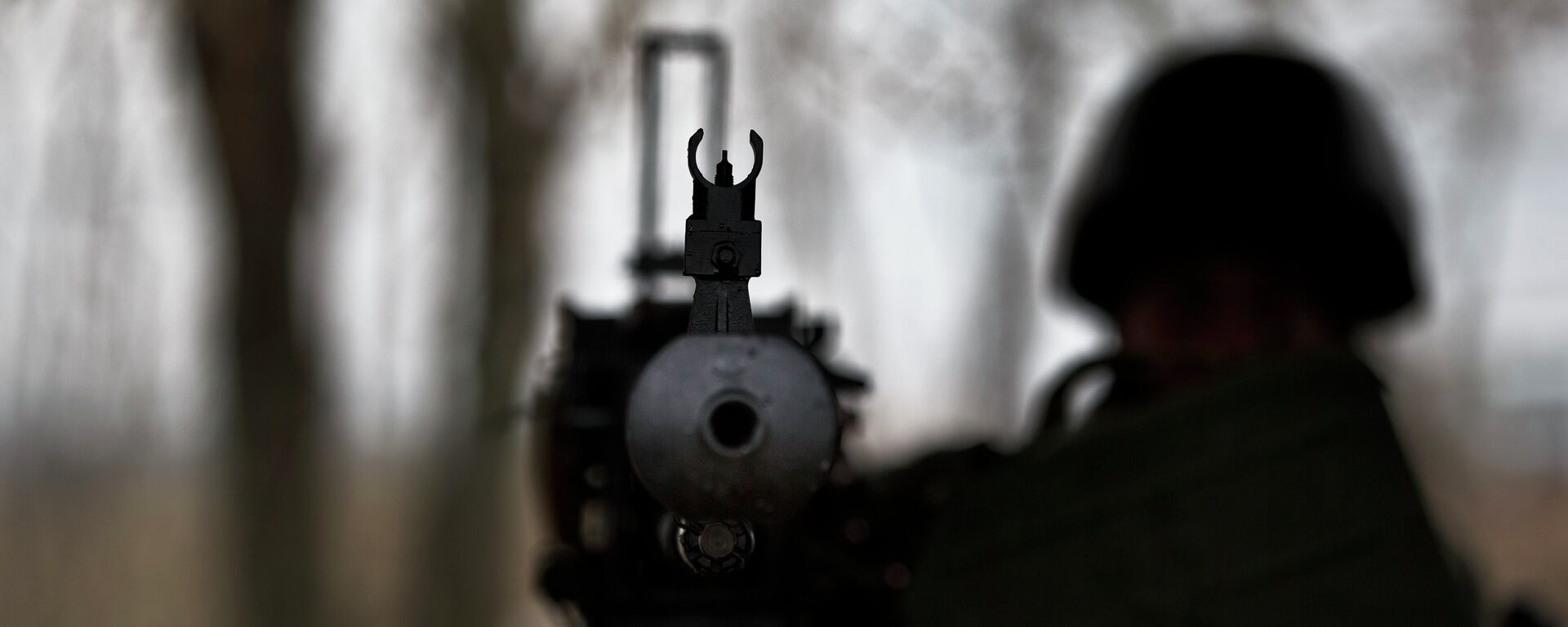
22 November 2021, 00:30 GMT
However, the Biden administration appears to be stuck in 2014 and still using an old playbook, according to the academic. Petro suggests that Biden has overlooked both enormous social and structural changes that have taken place in Crimea after re-unification with Russia and Kiev's failure to forcefully push Donbass back into Ukraine.
Therefore, according to the political scientist, the White House is resorting to the familiar strategy of sanctions, which though accomplishing nothing could receive bipartisan support in Congress, something that Biden desperately needs.
"Sanctions are supposed to prove that 'America is back' and leading the world," the professor says.
Earlier this week, US Senate Foreign Relations Chairman Bob Menendez (D-NJ) introduced an amendment
that would trigger a broad range of sanctions against Moscow if the US president, in their words, determines that Russia is engaged in or knowingly supports a significant escalation in hostilities or hostile action in or against Ukraine compared to levels before 1 November 2021.
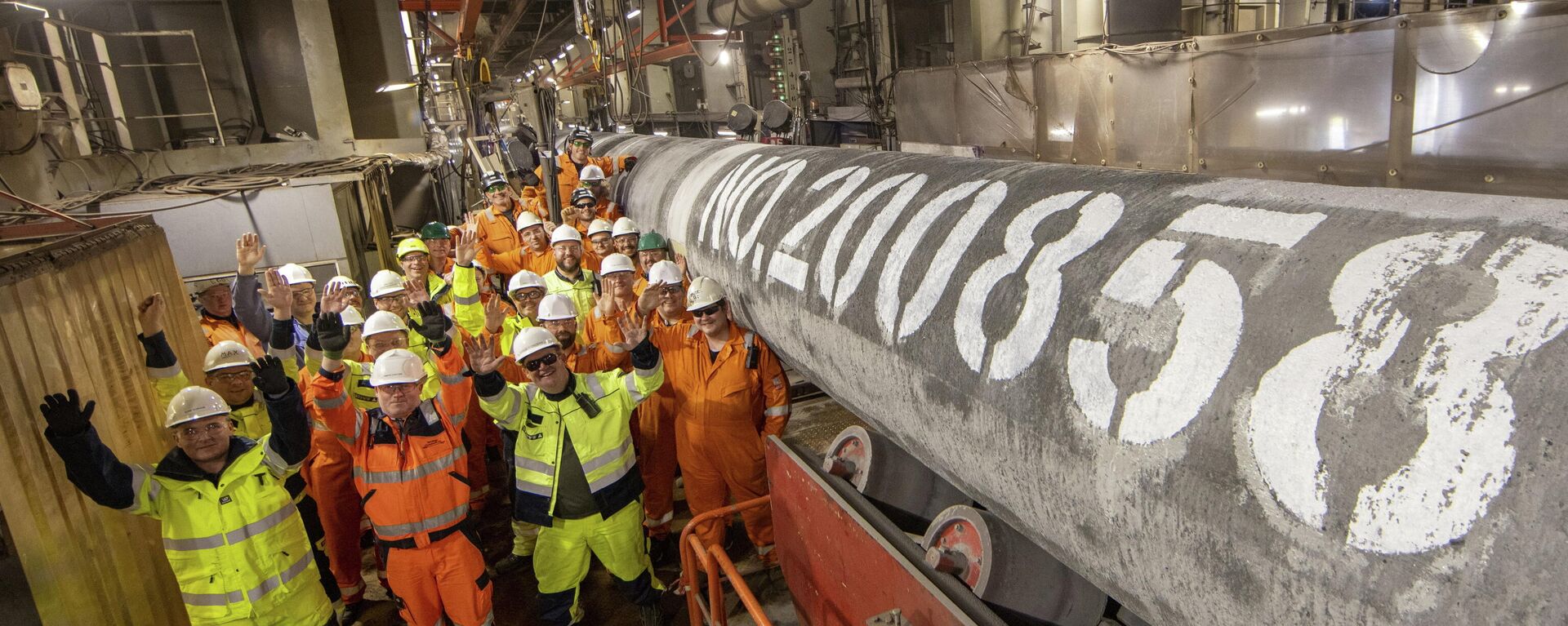
19 November 2021, 15:54 GMT
Wrong Timing to Hinder Nord Stream 2
The unfolding dynamics around Ukraine are also linked to the German-Russian Nord Stream gas pipeline, with the US checking "in one shot" Germany, the EU and Russia to prevent "any possible coupling in the Eurasian space," suggests Paolo Raffone, a strategic analyst and director of the CIPI Foundation in Brussels.
The analyst cites the fact that last week Germany's energy regulator Bundesnetzagentur (BNetzA)
suspended the certification process for Nord Stream 2 gas pipeline amid the latest Moscow-Washington row.
"It is quite telling that Germany discovers after 25 years that Gazprom has no legal status in the EU and therefore the technical authorization to use Nord Stream 2 is 'temporarily suspended'!" he remarks.
The US has repeatedly tried to throw sand under the wheels of the project, denouncing the EU's dependency on Russia's hydrocarbons. The European bloc gets about 40% of its imported natural gas from Russia.
For its part, Kiev largely sees the pipeline as a threat to the natural gas transit through the Ukrainian territory, despite Moscow's earlier statements that the transit would not be shut down.
Fuller does not rule out that EU leadership may be seeking
to pin the blame for the bloc's flawed energy policies on a set of "external factors," including Russia.
"There has been a lot of talk about a possible energy crisis in Europe this winter, as well as higher energy costs, and again, it's part of the general strategy to explain those issues as purely external problems that cannot be resolved or even mitigated domestically," she suggested. "So I think that plays into this a bit as well."
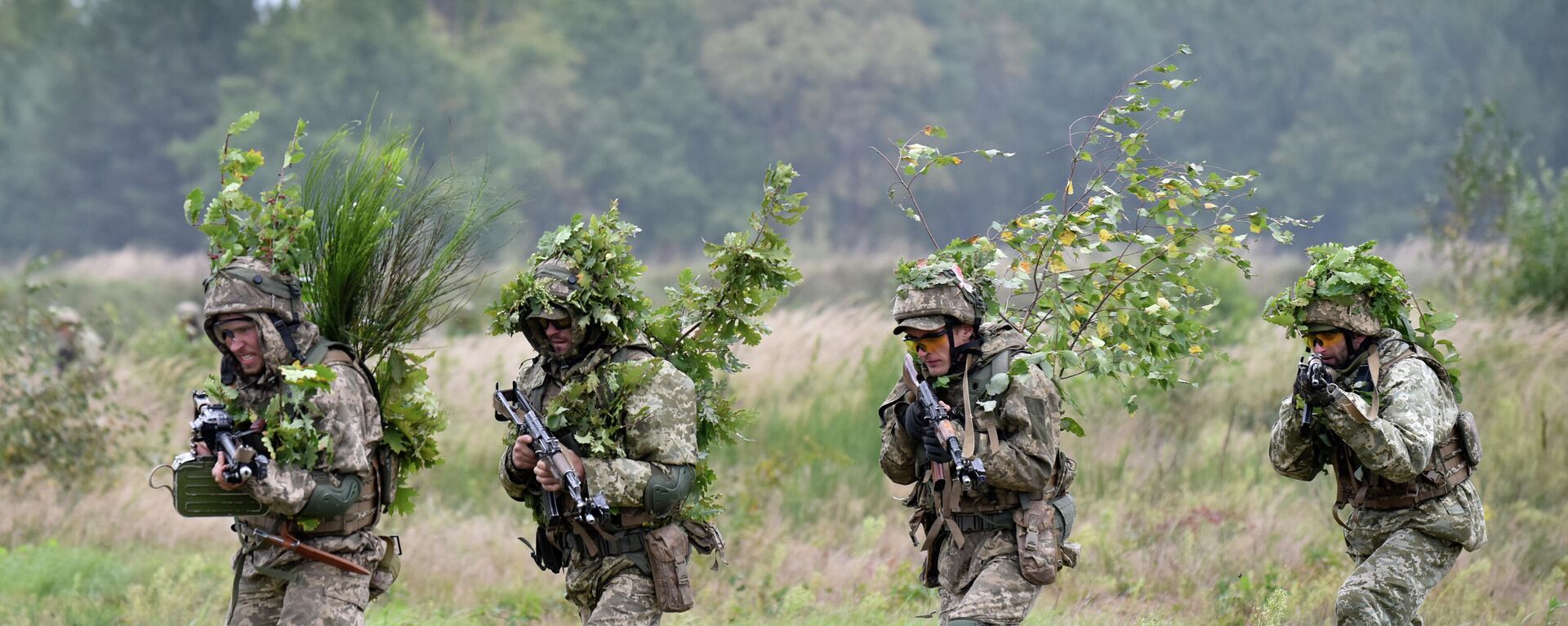
20 October 2021, 18:30 GMT
Why US & NATO Have Zero Appetite for Confronting Russia
The US-NATO military buildup in Ukraine and Secretary General Jens Stoltenberg's declarations that the transatlantic bloc "stands" with Kiev does not mean that "the Council would find any common ground on any significant action towards Russia," deems Raffone.
"With exception of Poland, Romania, some of the Baltics, and evidently the UK, without a concrete Russian military move outside its borders it is very difficult to convince France, Germany, Turkey and Italy to support any type of NATO anti-Russian military operation," Raffone says. "Why would France, Germany, Turkey and Italy commit suicide to serve American global interests?"
There is no appetite in Washington for a military confrontation with Russia, echoes Professor Robert Singh, a specialist in contemporary US politics at Birkbeck, University of London, adding that the probable US path is more economic sanctions.
"At this moment, the US in particular faces multiple problems and seems uncertain as to what it wants," Singh suggests. "Washington appreciates that in expanding NATO to Russia's borders, it has taken on commitments that it may not be able or willing to honour. Ukraine is another such example. The idea of NATO membership is off the agenda, but Biden still wants to show 'solidarity' with a nation he hopes to integrate with the West, geo-politically and economically."
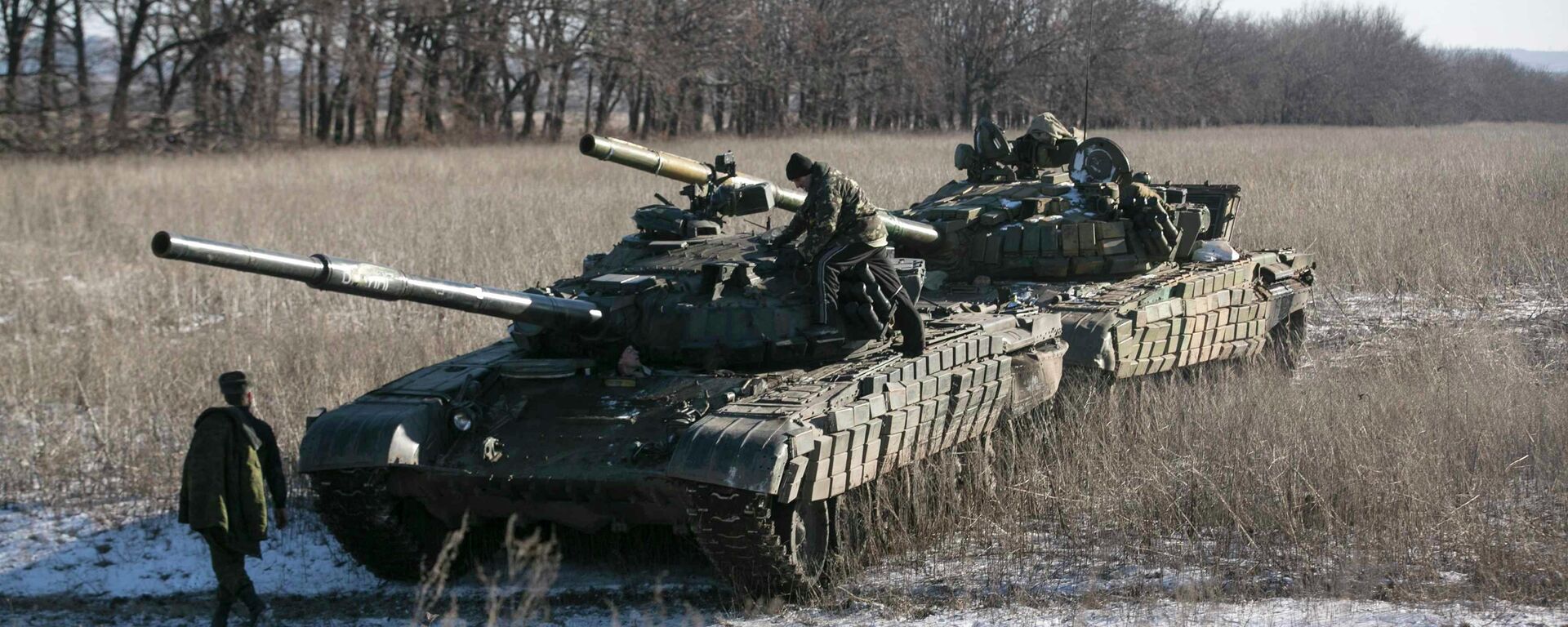
14 November 2021, 15:35 GMT
Although hawks in Washington may
cross Russia's "red lines" by supplying Ukraine with additional advanced military equipment, there are several issues which are currently thwarting their agenda, according to Fuller.
First, according to the author, Europeans are by no means interested in a military standoff in Ukraine, given that it is fraught with a risk of instability and a new influx of refugees, she notes. Second, "the hawkish attitude that relies on a never-ending series of external threats is wearing thin among the American public." Third, the positions of the Democratic neo-liberal "establishment" are not as solid as they used to be.
"The American 'establishment', if you will, lost the 2016 presidential election and won the 2020 one by a whisker and at great expense," Fuller says. "If they are smart, they will focus on domestic issues and proceed more cautiously with foreign interventions over the next few years."
